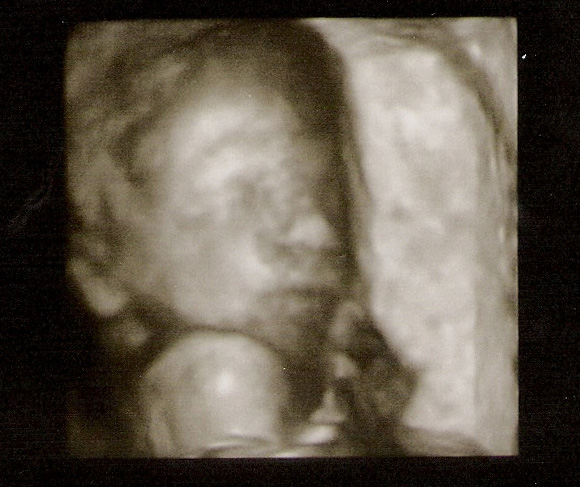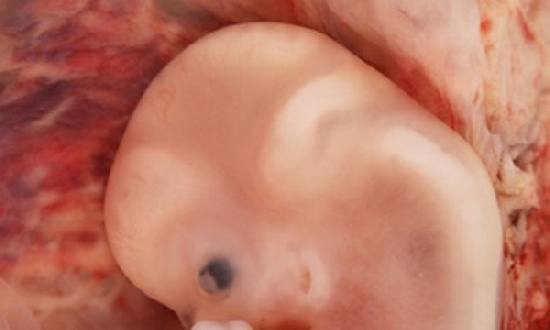Darren Carlson tells a story that captures the game that is often played by the medical community— depersonalizing the unborn child by semantics, so that abortion becomes a viable option.
Fetus or Child?
By: Darren Carlson

My wife is five months pregnant. Last month we went for an ultrasound to see the baby and have the doctors check to make sure everything was progressing nicely. We had done this three times before and were excited. As we met with the doctor and ultrasound technician they referred to what they saw as "your child." They must have said it 50x during the ultrasound as they referred to "your child's hand," "your child's heart," etc.
But then something changed.
Another doctor was brought into the room and for 5 minutes he stared at the baby's heart. The room was completely silent. He then began to tell us that there was a tumor on our child's heart and started to run down all the scenarios we were now faced with. Then the doctor said to us: "If the fetus is abnormal and that is management problem for you, you have the option to terminate your fetus." The slight change in wording tells the story. I was in too much shock to respond. But later it dawned on me what he had done. The child my wife was carrying was only a child if we wanted to keep it, as if it was our choice! However, if we did not want the baby, it was only a fetus.
Three weeks later we came back for another ultrasound. The growth on the heart was not a tumor, but a normal variant. In the doctor's eyes, our child was a baby again. In our eyes, nothing had changed.
Two years before abortion was legalized in America, a prochoice advocate instructed nurses in a prominent medical journal, “Through public conditioning, use of language, concepts and laws, the idea of abortion can be separated from the idea of killing.” The same year a Los Angeles symposium offered this training: “If you say, ‘Suck out the baby,’ you may easily generate or increase trauma; say instead, ‘Empty the uterus,’ or ‘We will scrape the lining of the uterus,’ but never, ‘We will scrape away the baby.’”
Language isn’t just the expression of minds but the molder of minds. How words are used influences our receptivity to an idea—even an idea that, communicated in straightforward terms, would be abhorrent.
Words that focus on the pregnancy and the uterus draw attention away from the person residing in the uterus. But no matter how we say it, “evacuating the uterus” or “terminating a pregnancy” is taking a human life.
Like toddler and adolescent, the terms embryo and fetus don’t refer to nonhumans but to humans at particular stages of development. Fetus is a Latin word variously translated “offspring,” “young one” or “little child.”
It’s scientifically inaccurate to say a human embryo or a fetus is not a human being simply because he’s at an earlier stage of development than an infant. This is like saying that a toddler isn’t a human being because he’s not yet an adolescent. One of my daughters is two years older than the other. Does this mean she’s two years better? Does someone become more human as they get bigger? If so, then adults are more human than children, and football players are more human than jockeys. Something nonhuman doesn’t become human by getting older and bigger; whatever is human is human from the beginning.
Browse more prolife articles and resources, and see Randy's books Pro-Choice or Pro-Life?, Why ProLife? and ProLife Answers to ProChoice Arguments.
Photo by Tai's Captures on Unsplash



